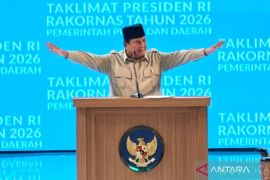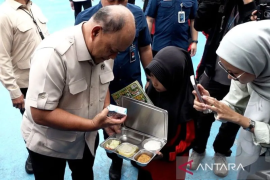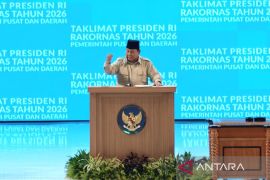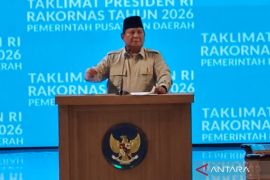The amount of DHE until October 2012 stood at US$22.3 billion with the biggest amount coming from coal commodity exports followed by crude palm oil and textiles.Jakarta (ANTARA News) - Bank Indonesia (BI/the central bank) said foreign exchange receipts from exports (DHE) were still small because of a number of banking and export constraints.
"The central bank still faces difficulties in monitoring the value of DHE receipts that exporters are required to report," Executive Director for Monetary and Economic Statistics of BI, Hendy Sulistyowati said here on Wednesday.
Hendy said the main constraints included the fact that information of exporters` addresses in their export documents (FEB) was not clear.
"Exporters often moved and did not provide their new addresses. It is difficult to trace and money could not be collected," Hendy said.
Hendy said exporters in the mining field often changed addresses and did not provide their addresses.
"Sometimes, we need two weeks to find the address of an exporters," the BI official said.
On the banking aspect, constraints included the fact that only a number of banks had a good system for DHE receipt reporting.
"Many banks do not have a good reporting system. The recording system of their transactions is not yet good," Hendy said.
The amount of DHE until October 2012 stood at US$22.3 billion with the biggest amount coming from coal commodity exports followed by crude palm oil and textiles.
In the meantime, Indonesia`s foreign exchange reserves, as of December 28, 2012, reached US$112.78 billion, up US$1.49 billion from US$111.29 billion at the end of the previous month.
"The reserves are calculated using the concept of International Reserve and Foreign Currency Liquidity (IRFCL) at current prices, under the Official Reserve Assets (ORA) format," said Bank Indonesia in its Monetary Aggregate Progress Report received here on Tuesday.
"Primary money, as of December 28, 2012, stood at Rp704,83 trillion, much higher than the previous month`s Rp647.98 trillion," the report stated.
"Banknotes and coins in circulation in December rose to Rp439.72 trillion, compared with the previous month`s Rp392.61 trillion," it pointed out.
"Central bank deposits increased to Rp239.96 trillion in December, from Rp221.98 trillion in the previous month," the report added.
Foreign exchange reserves are considered as assets of the government and foreign exchange banks, which must be maintained for the purposes of international transactions.
Foreign exchange is needed to finance imports and foreign debt.
The management of foreign exchange is made through various types of transactions, such as selling and buying foreign exchange, among other things.(*)
Editor: Heru Purwanto
Copyright © ANTARA 2013











